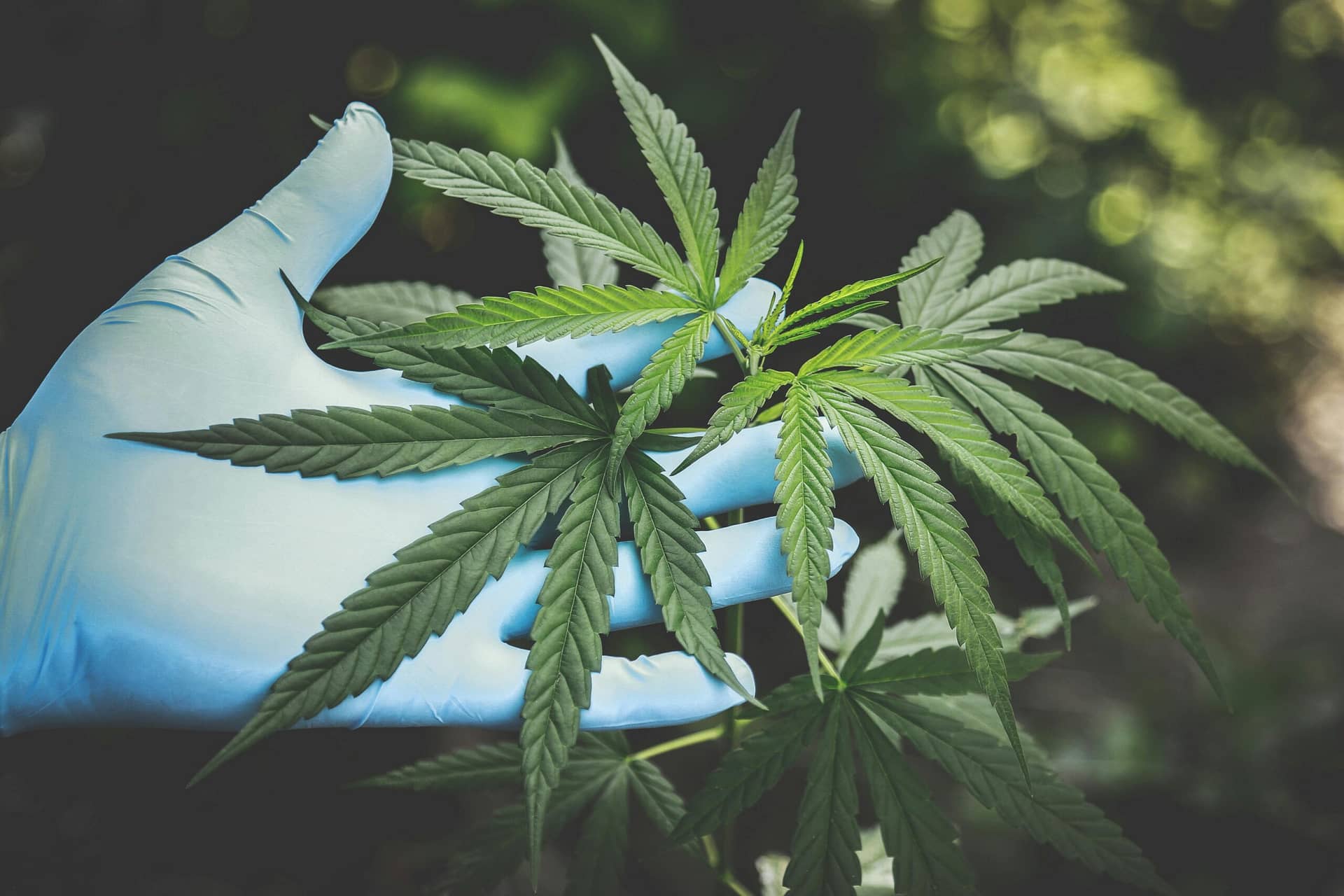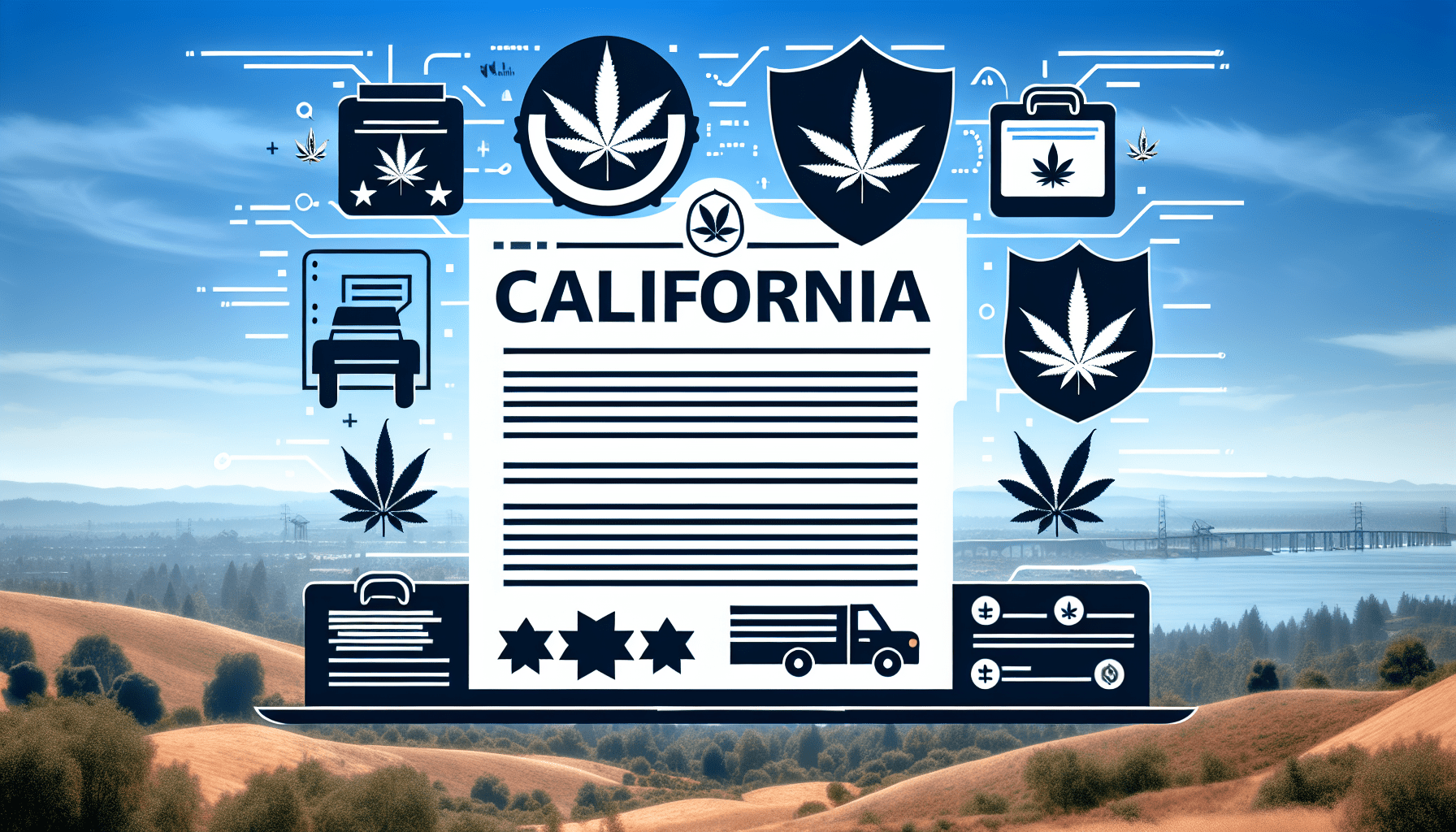California is known for its progressive approach to cannabis legislation, and understanding the regulations surrounding cannabis delivery services is crucial for both consumers and operators. In this article, we will explore the comprehensive landscape of cannabis delivery service regulations in California, shedding light on the key requirements, restrictions, and opportunities that exist in this rapidly growing industry. Whether you are curious about starting your own cannabis delivery service or simply want to stay informed about the regulations impacting your favorite products, this overview will provide you with valuable insights and help navigate California’s evolving cannabis delivery landscape. So grab a cup of tea or your favorite cannabis-infused beverage, and let’s dive into the world of cannabis delivery services in California!

Introduction to Cannabis Delivery Services
Definition of cannabis delivery service
Cannabis delivery service refers to the business of delivering cannabis products directly to consumers’ doorsteps. These services allow individuals to conveniently and safely purchase cannabis without having to visit a physical dispensary.
Rising popularity of cannabis delivery services
The popularity of cannabis delivery services has been steadily rising in recent years. With the growing acceptance and legalization of cannabis in many states, consumers are seeking convenient and discreet ways to access their desired products. Delivery services offer a convenient solution, especially for individuals who may have mobility issues, live in remote areas, or simply prefer the convenience of home delivery.
Benefits of cannabis delivery services
There are several benefits associated with cannabis delivery services. Firstly, it provides a safe and discreet way for individuals to access cannabis products, avoiding potentially uncomfortable situations at traditional dispensaries. Additionally, delivery services save consumers time and effort by eliminating the need for a physical visit to a dispensary. Furthermore, delivery services often offer a wider selection of products compared to brick-and-mortar dispensaries, allowing customers to explore different options and find products that best suit their needs.
State Regulations on Cannabis Delivery Services
The Medicinal and Adult-Use Cannabis Regulation and Safety Act (MAUCRSA)
In California, cannabis delivery services operate under the regulations outlined in the Medicinal and Adult-Use Cannabis Regulation and Safety Act (MAUCRSA). This set of laws governs the licensing, operation, and compliance requirements for both medicinal and recreational cannabis businesses, including delivery services.
Licensing requirements for cannabis delivery services
To operate a cannabis delivery service in California, businesses must obtain the appropriate licenses from the Bureau of Cannabis Control (BCC). These licenses include a cannabis retailer license and a cannabis delivery license. Applicants must meet various requirements, such as demonstrating compliance with local zoning regulations, passing background checks, and submitting a detailed business plan.
Distance restrictions for cannabis delivery
One of the key regulations surrounding cannabis delivery services is the distance restriction. In California, delivery services cannot operate within a 600-foot radius of schools, youth centers, and other sensitive locations. This restriction aims to protect minors and maintain the integrity of these spaces while allowing adults access to cannabis products.
Operating hours for cannabis delivery services
Cannabis delivery services in California have operating hour restrictions. These services are permitted to operate between the hours of 6:00 am and 10:00 pm. This regulation ensures that delivery services operate within reasonable hours and do not disturb residential neighborhoods during late-night hours.
Local Regulations on Cannabis Delivery Services
Authority of local jurisdictions to regulate cannabis delivery
While state regulations provide a framework for cannabis delivery services, local jurisdictions in California have the authority to impose additional regulations or ban these services altogether. This means that the rules and requirements for cannabis delivery can vary significantly between cities and counties within the state.
Variations in local regulations across different cities and counties
Due to the authority granted to local jurisdictions, there is a wide range of variations in regulations for cannabis delivery services across different cities and counties in California. Some areas may have more permissive regulations that allow for delivery services, while others may heavily restrict or prohibit these services. It is important for businesses to understand and comply with the specific regulations in their operating area.
Examples of strict local regulations on cannabis delivery
Certain cities and counties in California have implemented strict regulations on cannabis delivery services. For example, some jurisdictions may require specific zoning restrictions, additional security measures, or impose caps on the number of delivery licenses issued. These stricter regulations aim to address concerns related to public safety, community impact, and the prevention of illicit sales.
Implications of local regulations on delivery service operations
The variations in local regulations can significantly impact the operations of cannabis delivery services. Businesses must navigate through different licensing processes, comply with specific operating requirements, and adjust their business practices according to the rules set by each local jurisdiction. This can lead to operational complexities and the need for careful navigation of the regulatory landscape.
Security and Safety Requirements
Transportation and storage security measures
Cannabis delivery services are subject to strict security and safety requirements to ensure the safe transportation and storage of cannabis products. Delivery vehicles must have secure compartments or lock boxes to prevent unauthorized access to the products during transportation. Additionally, businesses must implement adequate surveillance systems, alarms, and other security measures to protect their inventory and premises.
Background checks and employee requirements
To maintain security and safety, cannabis delivery services are required to conduct thorough background checks on employees. This includes checking criminal records and verifying the eligibility of individuals to work in the cannabis industry. Only individuals who meet the required criteria can be employed in positions that involve handling cannabis products.
Packaging and labeling regulations
Cannabis delivery services must adhere to packaging and labeling regulations to ensure consumer safety and compliance with state laws. All cannabis products must be securely packaged and labeled in accordance with specific requirements, including accurate dosage information, product details, and appropriate warnings. Proper packaging and labeling help prevent accidental consumption, ensure product integrity, and provide important information for consumers.
Recordkeeping and reporting obligations
Cannabis delivery services are required to maintain detailed records of their operations. This includes keeping records of inventory, sales transactions, employee certifications, and other relevant documentation. Additionally, businesses must submit regular reports to regulatory authorities to demonstrate compliance with applicable regulations. These recordkeeping and reporting obligations help ensure transparency, accountability, and regulatory oversight.

Vehicle and Driver Regulations
Vehicle requirements for cannabis delivery
Delivery vehicles used by cannabis delivery services must meet specific requirements to ensure the safe and secure transportation of cannabis products. Vehicles must be registered, properly insured, and in compliance with state and local regulations. Additionally, delivery vehicles may be required to display identifying signage or labels to inform the public and law enforcement of their purpose.
Driver training and licensing
Cannabis delivery service drivers are required to undergo training and obtain the appropriate licenses to ensure they are knowledgeable about cannabis laws, safety protocols, and responsible delivery practices. This training helps drivers understand the specific requirements and responsibilities associated with their role, including age verification, product handling, and customer service.
Insurance requirements for delivery vehicles
Cannabis delivery services are required to have appropriate insurance coverage for their delivery vehicles. This includes general liability insurance, commercial auto insurance, and coverage for product liability. Insurance not only protects the business in case of accidents or property damage but also provides reassurance to customers that they are dealing with a professional and responsible service provider.
Advertising restrictions on delivery vehicles
Delivery vehicles used by cannabis delivery services are subject to advertising restrictions to ensure responsible and compliant marketing practices. These restrictions often include prohibitions on advertising cannabis products to minors, display of excessive or enticing graphical elements, and adherence to local guidelines regarding the size and content of advertisements. These regulations aim to prevent inappropriate or misleading marketing practices.
Age Verification and Compliance
Methods for age verification
Age verification is a crucial aspect of cannabis delivery services to prevent access to cannabis products by minors. Delivery drivers are trained to use various methods to verify the age of the recipient before completing a transaction. This may include requesting identification documents, such as a valid government-issued ID, and confirming that the recipient meets the legal purchasing age.
Ensuring compliance with legal purchasing age
Cannabis delivery services must have robust procedures in place to ensure compliance with the legal purchasing age. This includes training drivers on age verification protocols, implementing strict policies to prevent sales to minors, and conducting internal audits to monitor compliance. By prioritizing compliance, delivery services contribute to responsible cannabis use and the prevention of underage access.
Challenges in age verification for cannabis delivery services
While age verification is essential, it can pose challenges for cannabis delivery services. Some customers may be hesitant to provide identification or may attempt to deceive the delivery driver. Additionally, the reliance on visual inspections for age verification may be subject to human error. Robust training and consistent adherence to protocols, coupled with advancements in identity verification technologies, can help address these challenges.

Taxation and Financial Obligations
Cannabis taxes applicable to delivery services
Cannabis delivery services are subject to various taxes imposed on cannabis products, including excise taxes and sales taxes. These taxes are imposed at the state and local levels and contribute to the overall tax revenue generated from the cannabis industry. Delivery services must accurately calculate and collect these taxes as part of their financial obligations.
Recordkeeping and reporting of sales
Delivery services are required to keep detailed records of their sales transactions, including information such as product types, quantities sold, and corresponding tax amounts. Accurate recordkeeping is vital for meeting reporting obligations to regulatory authorities and ensures compliance with tax regulations. By maintaining thorough records, delivery services can easily report their sales and contribute to the overall transparency of the industry.
Cash handling restrictions and challenges
Cannabis delivery services often face challenges related to cash handling. Due to federal regulations and banking restrictions, many financial institutions refuse to provide banking services to cannabis-related businesses. As a result, delivery services primarily operate as cash-based businesses, which can pose security risks and complicate financial management. Implementing adequate cash handling procedures and exploring alternative financial solutions can help address these challenges.
Banking challenges for cannabis delivery businesses
The banking challenges faced by cannabis delivery businesses extend beyond cash handling. Without access to traditional banking services, businesses may face difficulties in managing payroll, paying bills, obtaining loans, or accepting electronic payments. These challenges make it crucial for the industry to explore innovative financial solutions tailored to the unique needs of cannabis delivery services.
Advertising and Marketing Restrictions
Prohibitions on advertising to minors
As with other cannabis businesses, delivery services are prohibited from advertising their products or services to minors. This includes avoiding marketing materials that appeal to or target individuals under the legal purchasing age. By adhering to these restrictions, delivery services contribute to responsible advertising practices and help prevent underage access to cannabis.
Restrictions on online and social media advertising
Cannabis delivery services face specific restrictions on online and social media advertising platforms, as many popular platforms have policies that prohibit cannabis-related content. These restrictions limit the ability of delivery services to reach their target audience through traditional digital marketing channels. However, businesses can explore alternative platforms and creative marketing strategies to connect with potential customers while remaining compliant.
Marketing limitations for cannabis delivery services
In addition to restrictions related to minors and online advertising, delivery services are subject to various marketing limitations. These limitations may include restrictions on the size and content of advertising materials, requirements for disclaimers or health warnings, and compliance with local guidelines. By adhering to these limitations, delivery services can promote their services responsibly while maintaining compliance with state and local regulations.
Compliance with state and local guidelines
Compliance with state and local advertising guidelines is paramount for cannabis delivery services to operate successfully. These guidelines provide a framework for responsible marketing practices while keeping within the bounds of the law. Businesses must review and stay up-to-date with the specific advertising regulations applicable to their operating area to ensure compliance and avoid potential penalties.

Consumer Protection and Quality Control
Product quality and testing requirements
Cannabis delivery services must prioritize product quality and ensure compliance with rigorous testing requirements. Cannabis products undergo testing for potency, contaminants, pesticides, and other quality indicators. Delivery services should only source products from licensed manufacturers who adhere to these testing requirements, guaranteeing that customers receive safe and high-quality cannabis products.
Compliance with laboratory testing regulations
To ensure compliance with laboratory testing regulations, delivery services must work with licensed testing laboratories that meet the necessary accreditation and certification standards. By working closely with these laboratories, delivery services can verify the quality and safety of the products they offer, providing reassurance to customers and contributing to the overall integrity of the industry.
Consumer rights and protections
Cannabis delivery services are responsible for protecting consumer rights and ensuring transparency in their operations. This includes providing accurate product information, clear pricing, and fair business practices. Delivery services should have protocols in place to handle customer complaints, inquiries, and product returns, allowing customers to exercise their rights and receive satisfactory resolutions.
Recall and product return protocols
In the event of product recalls or customer dissatisfaction, cannabis delivery services must have robust recall and product return protocols. These protocols outline the steps to be taken in cases of potential product defects, recall notices from manufacturers, or customer requests for returns. By implementing effective recall and return processes, delivery services can promptly address any concerns and maintain consumer trust.
Future Outlook and Challenges
Potential changes in cannabis delivery regulations
The future outlook for cannabis delivery services is subject to potential changes in regulations at both the state and federal levels. As attitudes towards cannabis evolve and more states move towards legalization, there may be revisions to existing regulations, including those governing delivery services. Navigating these changes and staying informed of any regulatory updates will be crucial for businesses in the delivery sector.
Challenges and controversies surrounding cannabis delivery services
Cannabis delivery services face various challenges and controversies. Some concerns raised include potential impacts on public safety, illicit market activity, and community integration. Additionally, disputes about local control of delivery services and disagreements between state and local jurisdictions can create uncertainties for businesses. Addressing these challenges and controversies through open dialogue, responsible operations, and adherence to regulations will be pivotal to the continued success of delivery services.
Market opportunities and growth potential
Despite the challenges, cannabis delivery services present significant market opportunities and growth potential. As more states legalize cannabis, there is an increasing demand for convenient access to products. Delivery services offer a unique solution and have the potential to capture a significant portion of the market. By providing exceptional customer service, offering a diverse range of products, and maintaining compliance, delivery services can position themselves for success within this evolving industry.
Effects of federal regulations on cannabis delivery
Federal regulations continue to pose challenges for cannabis delivery services. While some progress has been made towards cannabis reform, including the recent passage of the SAFE Banking Act, there remains a lack of consistent federal legislation and conflicting policies between federal and state laws. These inconsistencies create obstacles for delivery services, particularly in areas such as banking, interstate commerce, and transportation across state lines. Advocacy efforts and continued dialogue surrounding federal regulations will be key to achieving a more cohesive and supportive regulatory environment for cannabis delivery services.
